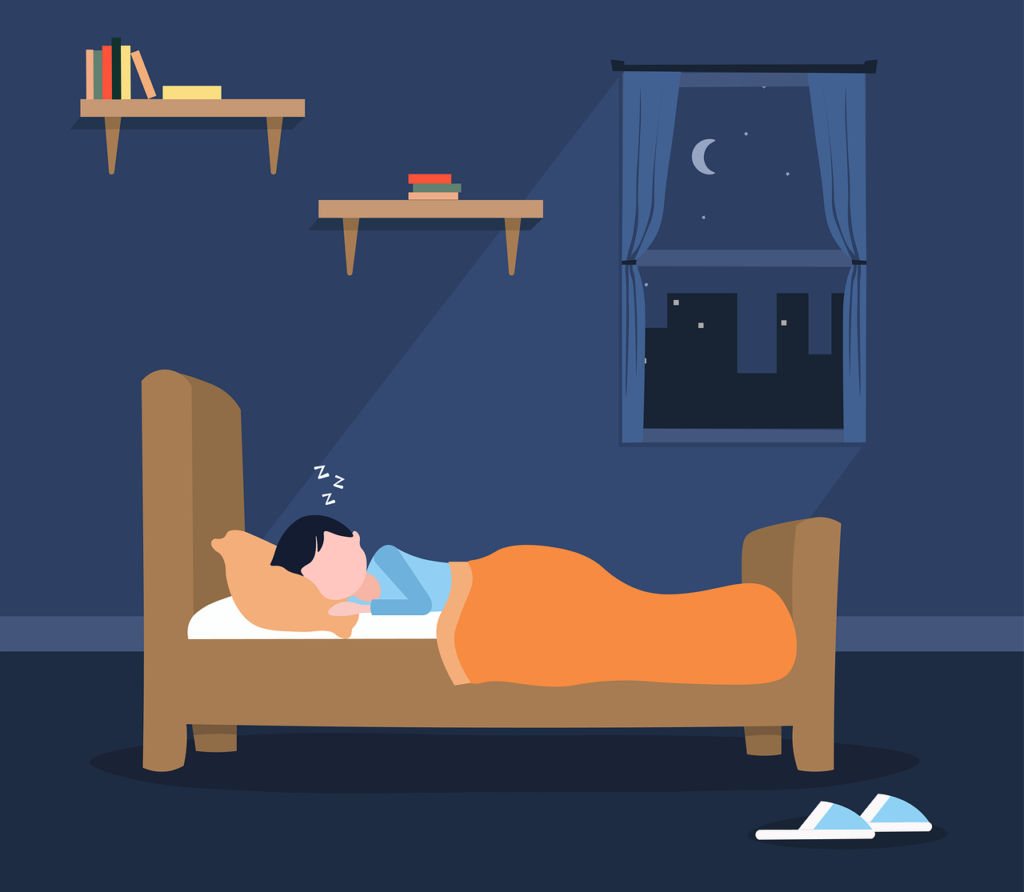Nurturing Your Well-Being

Understanding the Importance of Self-Care for Mental Health
In the fast-paced and demanding world, we live in, taking care of our mental well-being is essential for overall health and happiness. Self-care involves intentionally engaging in activities and practices that promote emotional and psychological well-being. It allows us to recharge, manage stress, and build resilience to navigate life’s challenges. In this article, we will explore self-care tips specifically tailored to improve mental health and nurture a positive mindset.
Prioritizing Restful Sleep and Relaxation
Getting enough restful sleep is crucial for mental health and cognitive function. Prioritize sleep by establishing a bedtime routine, limiting screen time before bed, and creating a comfortable sleep environment. Adequate rest allows your mind to rejuvenate and better cope with stress.
In addition to sleep, incorporating relaxation techniques into your daily routine can significantly reduce stress and anxiety. Consider practices such as meditation, deep breathing exercises, yoga, or spending time in nature. These activities help calm the mind and promote a sense of peace and tranquility.
Nourishing Your Body and Mind with Balanced Nutrition
The foods we eat can have a significant impact on our mental well-being. Focus on a balanced and nutritious diet that includes plenty of fruits, vegetables, whole grains, lean proteins, and healthy fats. Avoid excessive consumption of processed and sugary foods, as they can negatively affect mood and energy levels.
Stay hydrated by drinking an adequate amount of water throughout the day. Dehydration can lead to fatigue and mood fluctuations. Limiting alcohol and caffeine intake is also beneficial, as they can disrupt sleep patterns and contribute to anxiety.
Self-Care Tips: Cultivating Healthy Habits and Mindful Practices

Building healthy habits and engaging in mindful practices can improve mental resilience and foster a positive mindset. Consider the following self-care practices:
1.Regular Exercise: Physical activity releases endorphins, which are natural mood boosters. Engage in activities you enjoy, such as walking, dancing, swimming, or cycling.
2.Limiting Screen Time: Set boundaries for screen time, especially on social media and news consumption. Too much exposure to negative information can impact mental health.
3.Establishing Boundaries: Learn to say no to commitments that overwhelm you and prioritize self-care activities.
4.Social Connection: Nurture supportive relationships with friends and family. Social connections play a vital role in combating feelings of loneliness and isolation.
5.Journaling: Write down your thoughts and feelings to gain insight into your emotions and promote self-reflection.
6.Setting Realistic Goals: Break tasks into manageable steps and celebrate your accomplishments, no matter how small.
7.Seeking Professional Help: If you are struggling with your mental health, don’t hesitate to seek support from a mental health professional.
By incorporating these self-care tips into your daily life, you can foster mental well-being, build emotional resilience, and enhance overall life satisfaction.
Self-Care Tips: Prioritizing Restful Sleep and Relaxation for Mental Well-Being

Getting enough restful sleep is crucial for mental health and cognitive function. Prioritize sleep by establishing a bedtime routine that promotes relaxation and signals to your body that it’s time to wind down. Consider the following tips for better sleep:
1.Consistent Bedtime: Try to go to bed and wake up at the same time each day, even on weekends. Consistency helps regulate your internal clock and improves sleep quality.
2.Create a Calming Environment: Make your bedroom a peaceful and comfortable space conducive to sleep. Keep the room cool, dark, and quiet to promote relaxation.
3.Relaxation Techniques: Engage in calming activities before bedtime, such as reading a book, taking a warm bath, or practicing relaxation exercises. These practices can help reduce stress and prepare your mind for sleep.
4.Limit Stimulants: Avoid consuming caffeine or heavy meals close to bedtime, as they can disrupt sleep patterns.
5.Avoid Napping Late in the Day: If you need to nap, keep it short and avoid napping too close to your bedtime.
In addition to sleep, incorporating relaxation techniques into your daily routine can significantly reduce stress and anxiety. Consider practices such as:
1.Meditation: Spend a few minutes each day meditating to calm your mind and improve focus.
2.Deep Breathing Exercises: Practice deep breathing exercises to activate the body’s relaxation response and reduce stress.
3.Yoga: Participate in yoga sessions to promote physical and mental relaxation, flexibility, and mindfulness.
4.Spending Time in Nature: Take regular nature walks or spend time outdoors to connect with nature and reduce stress.
Remember that self-care practices may vary from person to person. Find what works best for you and incorporate these activities into your daily routine to promote restful sleep and relaxation for better mental health.
Self-Care Tips for Healthy Nourishing Your Body and Mind with Balanced Nutrition

The foods we eat can have a significant impact on our mental well-being. Proper nutrition is essential for fueling both our bodies and minds. Consider the following self-care tips to nourish your body and mind with balanced nutrition:
1.A Balanced Diet: Focus on a well-rounded diet that includes a variety of nutrient-dense foods. Incorporate plenty of fruits, vegetables, whole grains, lean proteins, and healthy fats into your meals.
2.Mindful Eating: Practice mindful eating by paying attention to your hunger and fullness cues. Avoid distractions while eating, and savor each bite, appreciating the flavors and textures of your food.
3.Limit Processed Foods: Minimize the consumption of processed and sugary foods, as they can lead to mood fluctuations and energy crashes.
4.Hydration: Stay hydrated by drinking an adequate amount of water throughout the day. Dehydration can contribute to fatigue and impact cognitive function.
5.Moderate Caffeine and Alcohol: Limit your intake of caffeine and alcohol, as excessive consumption can disrupt sleep and affect mood.
6.Nutrient-Rich Snacks: Choose nutrient-rich snacks, such as fresh fruits, raw nuts, or Greek yogurt, to fuel your body and sustain energy levels between meals.
7.Omega-3 Fatty Acids: Include sources of omega-3 fatty acids in your diet, such as fatty fish (salmon, trout), flaxseeds, and chia seeds. Omega-3s are linked to improved mood and brain health.
8.Vitamins and Minerals: Ensure you get a variety of vitamins and minerals from your diet or consider a supplement if needed. B vitamins, magnesium, and vitamin D, in particular, are important for mental well-being.
Remember that nutrition plays a significant role in how our bodies and minds function. By making conscious and wholesome food choices, you can support your mental health and overall well-being.
Self-Care Tips: Cultivating Healthy Habits and Mindful Practices for Better Well-Being

Building healthy habits and engaging in mindful practices can significantly improve mental resilience and foster a positive mindset. Consider the following self-care practices:
1.Regular Exercise: Physical activity is not only beneficial for your body but also has a profound impact on mental health. Engage in activities you enjoy, such as walking, dancing, swimming, or cycling. Exercise releases endorphins, natural mood-boosting chemicals that can reduce stress and anxiety.
2.Limiting Screen Time: Set boundaries for screen time, especially on social media and news consumption. Too much exposure to negative information can impact mental health. Instead, prioritize activities that bring joy and relaxation.
3.Establishing Boundaries: Learn to say no to commitments that overwhelm you and prioritize self-care activities. Setting boundaries in personal and professional relationships helps preserve your mental and emotional well-being.
4.Social Connection: Nurture supportive relationships with friends, family, or join social groups that share your interests. Social connections play a vital role in combating feelings of loneliness and isolation.
5.Journaling: Write down your thoughts and feelings regularly to gain insight into your emotions and promote self-reflection. Journaling can help clarify your thoughts and reduce stress.
6.Setting Realistic Goals: Break tasks into manageable steps and celebrate your accomplishments, no matter how small. Setting realistic goals and acknowledging your progress boosts self-esteem and motivation.
7.Seeking Professional Help: If you are struggling with your mental health, don’t hesitate to seek support from a mental health professional. A therapist or counselor can provide valuable guidance and help you develop coping strategies.
8.Practicing Gratitude: Cultivate a daily gratitude practice by acknowledging the things you are grateful for. Focusing on gratitude can shift your perspective and improve your overall well-being.
By incorporating these self-care tips into your daily life, you can nurture your mental health and build emotional resilience. Remember that self-care is not a one-size-fits-all approach. Discover what works best for you and make self-care a priority in your journey to better mental health and overall well-being.

Amelya Evelyn is freelance writer, health reporter, and author, she shares her experiences in the hope that others will feel less alone in their health struggles.She loves breaking down complex science and health information, making it easier for people to understand




